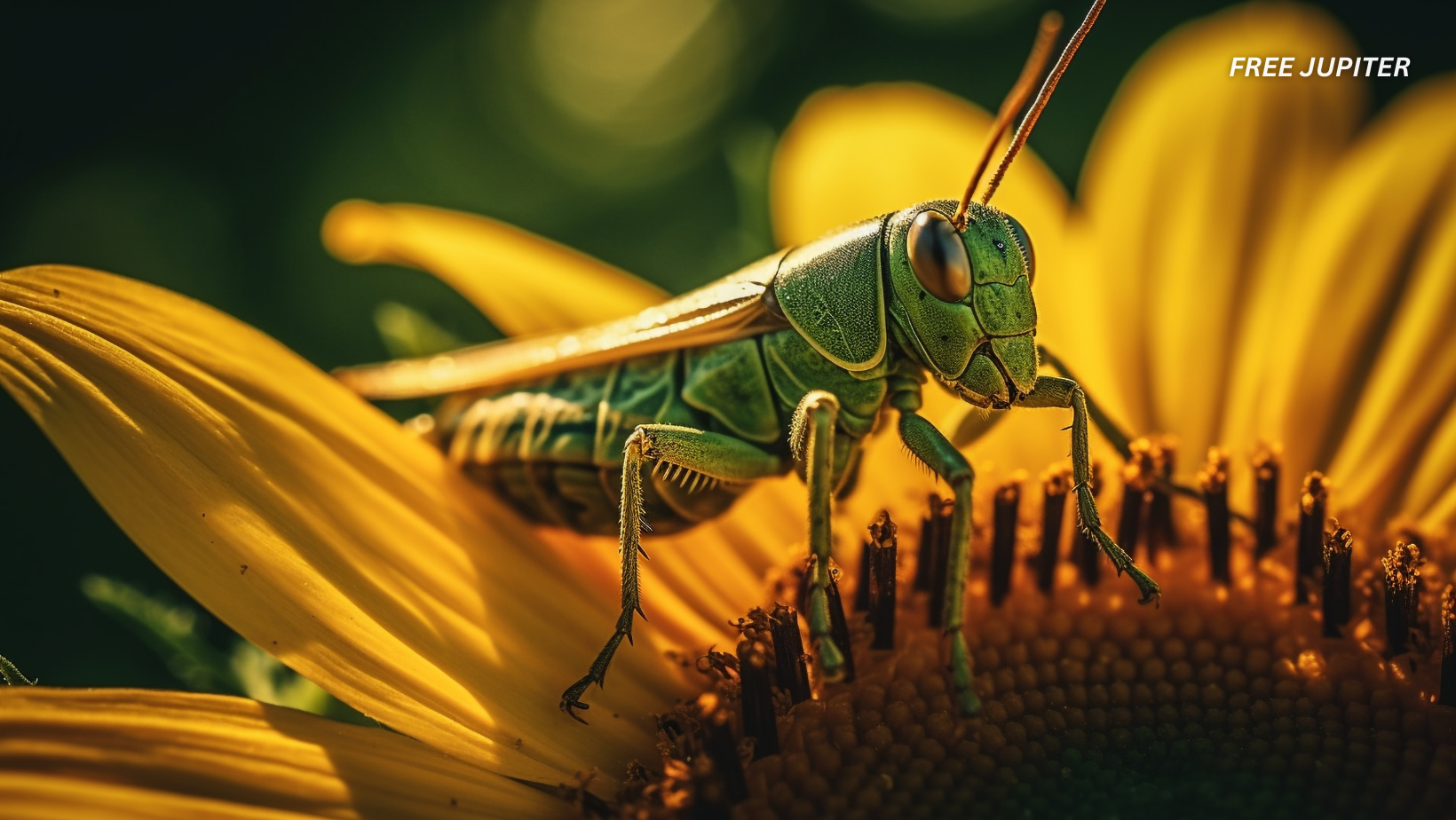Friendly Note: FreeJupiter.com shares general info for curious minds 🌟 Please fact-check all claims—and always check health matters with a professional 💙
It turns out humans may not be the only creatures walking (or crawling or buzzing) around with a sense of what’s going on. A growing group of scientists now believes that consciousness — that mysterious inner experience of being alive — might not be so rare in the animal kingdom after all. In fact, it might be downright common.
This isn’t just philosophical pondering. Nearly 40 scientists recently signed something called The New York Declaration on Animal Consciousness. This isn’t your average science paper — it’s a bold public statement suggesting that consciousness could exist not just in obvious candidates like dogs and parrots, but also in bees, fish, reptiles, and even squid and snails.
Let that sink in: that housefly zipping past your ear might be feeling something.
What Exactly Are Scientists Saying?
The researchers behind the declaration say there’s enough solid evidence to believe that many kinds of animals — even ones very different from us — might have experiences of their own. They might feel pain. They might be capable of fear, or even simple joy. In short, animals may have rich inner lives we’ve barely begun to understand.
“We can’t say for sure what it feels like to be a crab or a beetle,” the scientists admit, “but we shouldn’t rule out the possibility that they feel something.” In other words, even if we don’t understand their experience, that doesn’t mean there isn’t one.
Why Now?
This isn’t just a case of soft-hearted animal lovers dreaming big. There’s a wave of scientific studies revealing just how clever and complex many animals are.
Take the octopus, for example. With arms that can taste and minds that can solve puzzles, they’re known to be curious and even playful. Crows can use tools and remember faces. Elephants comfort each other and mourn their dead. Even bees have shown signs of optimism or stress, and fruit flies can learn from each other.
Each of these discoveries chips away at the old idea that only humans — and maybe a few of our furry cousins — are conscious beings.
Read more: It’s Official—Crabs Can Experience Pain, Say Scientists
From Weird Idea to Mainstream Science
Not long ago, talk of animal consciousness was dismissed as unscientific — more poetic than practical. But that’s no longer the case. Today, respected scientists and institutions are treating it as a serious line of research. And this declaration is a big part of pushing that shift forward.
Instead of trying to prove that animals think exactly like humans, the new approach is more open-minded: let’s look at the evidence, even if it leads us in strange directions. After all, consciousness doesn’t have to look like ours to be real.
So What Does This Mean for Us?
If there’s even a chance that many animals are conscious — that they feel something — that possibility changes how we should treat them. This is what the declaration is really about.
The scientists argue that if animals might be sentient, then our decisions — about farming, fishing, scientific testing, and even pest control — need to reflect that. Even the possibility of consciousness in animals, they say, should make us think twice before causing harm.
They’re not demanding we stop swatting mosquitoes or close all the zoos. But they are encouraging more thoughtful, humane choices — based not just on tradition, but on what science is starting to reveal about the creatures we share the planet with.
A Bigger Picture
At its heart, this isn’t just a story about animals. It’s about how we define life, intelligence, and morality. As researchers continue exploring the minds of animals — from clever crows to humble worms — we’re being asked to expand our understanding of consciousness itself.
And who knows? The more we discover about them, the more we might learn about ourselves.
Do Bees Feel Happy or Sad? Scientists Think They Might
If the idea of emotional insects still sounds like science fiction, honeybees may be the tiny, winged reality check we didn’t see coming. Long dismissed as mechanical pollinators running on autopilot, bees are now taking center stage in the growing conversation about animal sentience. And it’s not just wishful thinking — their behavior is giving scientists serious reasons to believe that bees might experience something resembling emotion.
A Sweet Surprise That Sparked Optimism
In a groundbreaking experiment, researchers trained honeybees to expect a sugary reward after a particular cue. But then, just before the test, they gave some of the bees an unexpected sugar treat — a kind of sweet surprise. What happened next was fascinating: these bees became noticeably more curious and eager to explore a new, ambiguous stimulus.
Essentially, they acted more optimistic, as if the world had suddenly become a more promising place. This kind of behavioral shift — being more willing to engage with something unknown — mirrors how humans and other animals often respond when they’re in a good mood. It’s not just reflex — it’s a subtle sign of a change in internal state.
The Stress Test: When Bees Were Shaken
The researchers didn’t stop with optimism. In another part of the experiment, bees were gently shaken to mimic the feeling of a predator attack. The jostle was harmless, but stressful — and the bees reacted. These “shaken” bees became less responsive to the sugar cues they’d previously been drawn to. They were more cautious, less curious, and seemed hesitant to explore.
In mammals, this would look like a stress response — a kind of anxiety or emotional withdrawal. The bees’ shift in behavior suggests something similar: an internal experience influencing how they interact with the world.
What This Means: Emotion-Like States in Tiny Brains
Scientists aren’t saying bees sit around contemplating their lives or writing tiny poems about flower fields. But the emerging evidence shows that bees likely experience emotion-like states — internal conditions that guide their actions in complex ways.
This matters because emotions help animals (and humans) make decisions. If bees have these emotional gears turning, it means they’re doing more than just reacting automatically — they’re feeling their way through situations, even if it’s on a very basic level.
Read more: Out-of-Body Experiences Suggest Consciousness Exists Outside the Brain, Scientists Say
Big Ideas from Tiny Creatures
The honeybee’s brain is about the size of a sesame seed, yet it may support a miniature world of feeling. That challenges a long-standing assumption: that only creatures with big, complex brains are capable of sentient experience.
What’s even more compelling is that bees aren’t alone. Other insects, like fruit flies and ants, are showing signs of similar emotional processing. Jumping spiders — with their eight eyes and surprisingly curious behavior — are also under investigation for signs of awareness. The more we look, the more the emotional line between humans and other species seems to blur.
Why This Changes Everything
If bees and other insects can experience the world through a lens of optimism, fear, or stress — even in simple ways — then we may need to rethink how we treat them. These aren’t just bug-eyed machines buzzing around without a clue. They might, in their own tiny way, feel.
That possibility changes the conversation around farming, habitat destruction, pesticide use, and even the ethics of research. Recognizing the potential for insect emotions doesn’t mean giving bees voting rights — but it might mean giving their experiences the respect we’ve long reserved only for larger, louder creatures.
So next time a bee hovers near your lemonade, consider this: it might not just be looking for sugar. It could be hoping, reacting, remembering — and, in some small but significant way, feeling.










